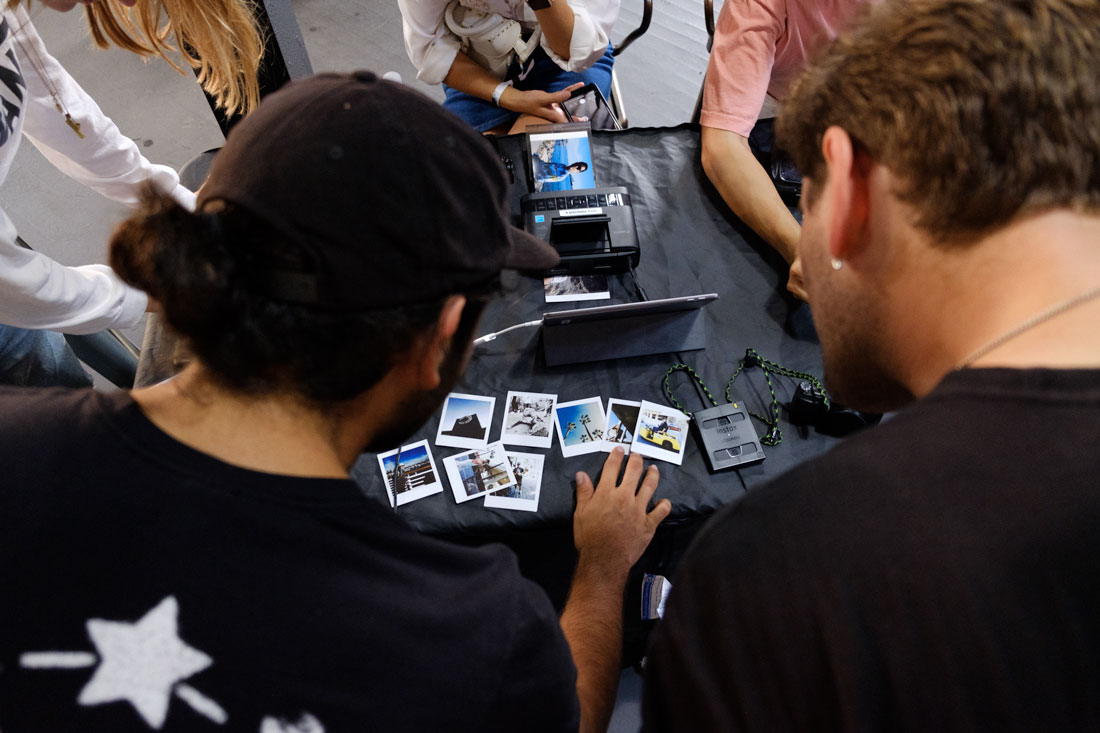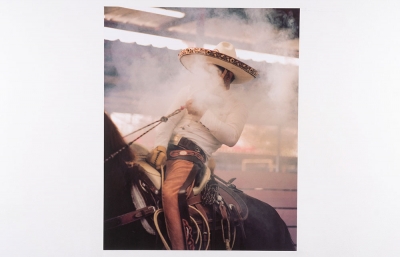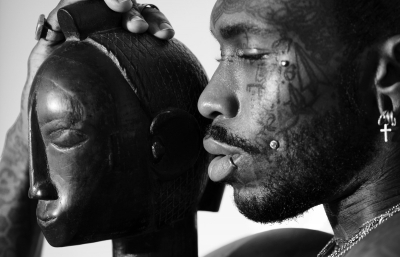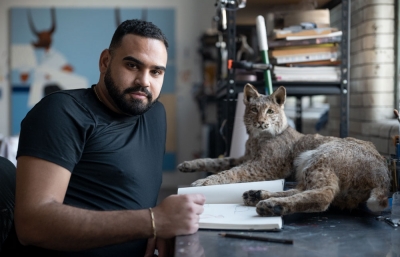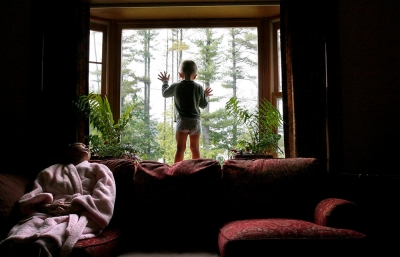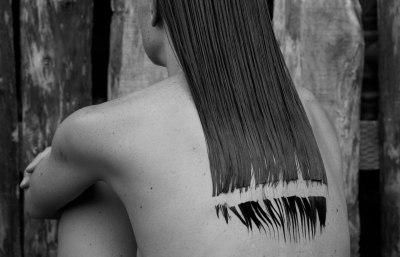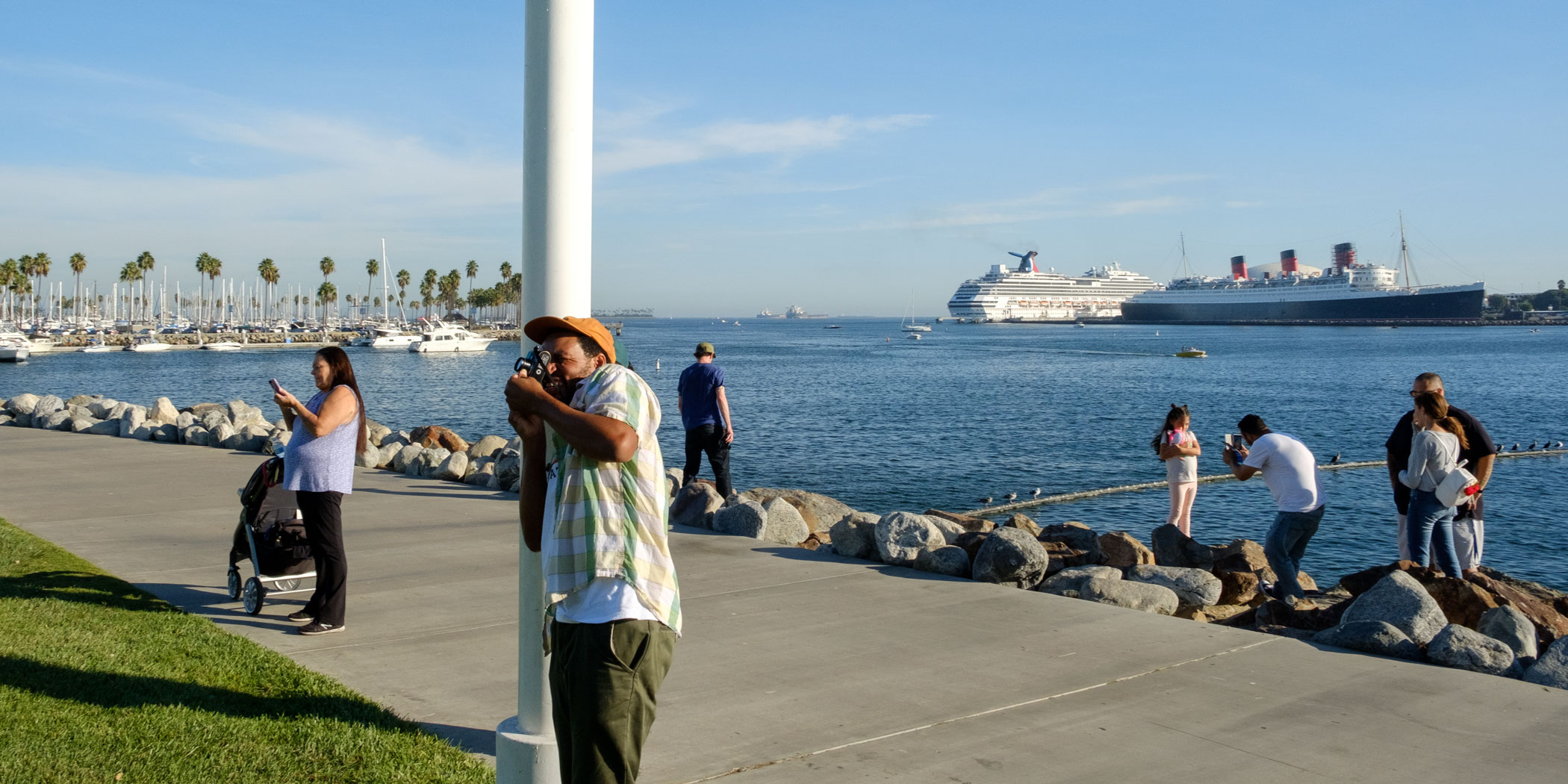
Vision Walk: ComplexCon
With Ray Barbee
We recently partnered with Vans on a specially curated group of photo walks at ComplexCon with photographers Ray Barbee, Daniel Arnold, MIRANDA BARNES, and BROCK FETCH. Each photographer brought their own unique styles and backgrounds to the walks, leading a group around the convention and Long Beach.
Ray Barbee is an American skateboarder, musician, and photographer originally from San Jose, California. He started skateboarding in 1984, when he was in seventh grade, and has grown to become one of the most iconic skateboarders of his generation (he has a signature shoe with Vans. His multi-instrumentalist music career and photography work has made Ray one of the most versatile cultural figures in art.
Were there photographs and images that you remember as a kid, before skateboarding and seeing skate photos?
Ray Barbee: I didn't pay attention until I saw my first skateboard magazine. It was at that point that photography and photos, in general, made an impression on me. Because now it was tied to something that I have an emotional connection to because it's a part of this whole new world that I'm introduced to. I take that back. My parent’s record collection.
Album covers?
Yeah, I grew up with a lot of Motown and Jazz. There were certain album covers that I would always pull out. We had our stereo system with shelving where you had your turntable, your receiver, and might have been 8-track. Then down below was the space where you put the records.
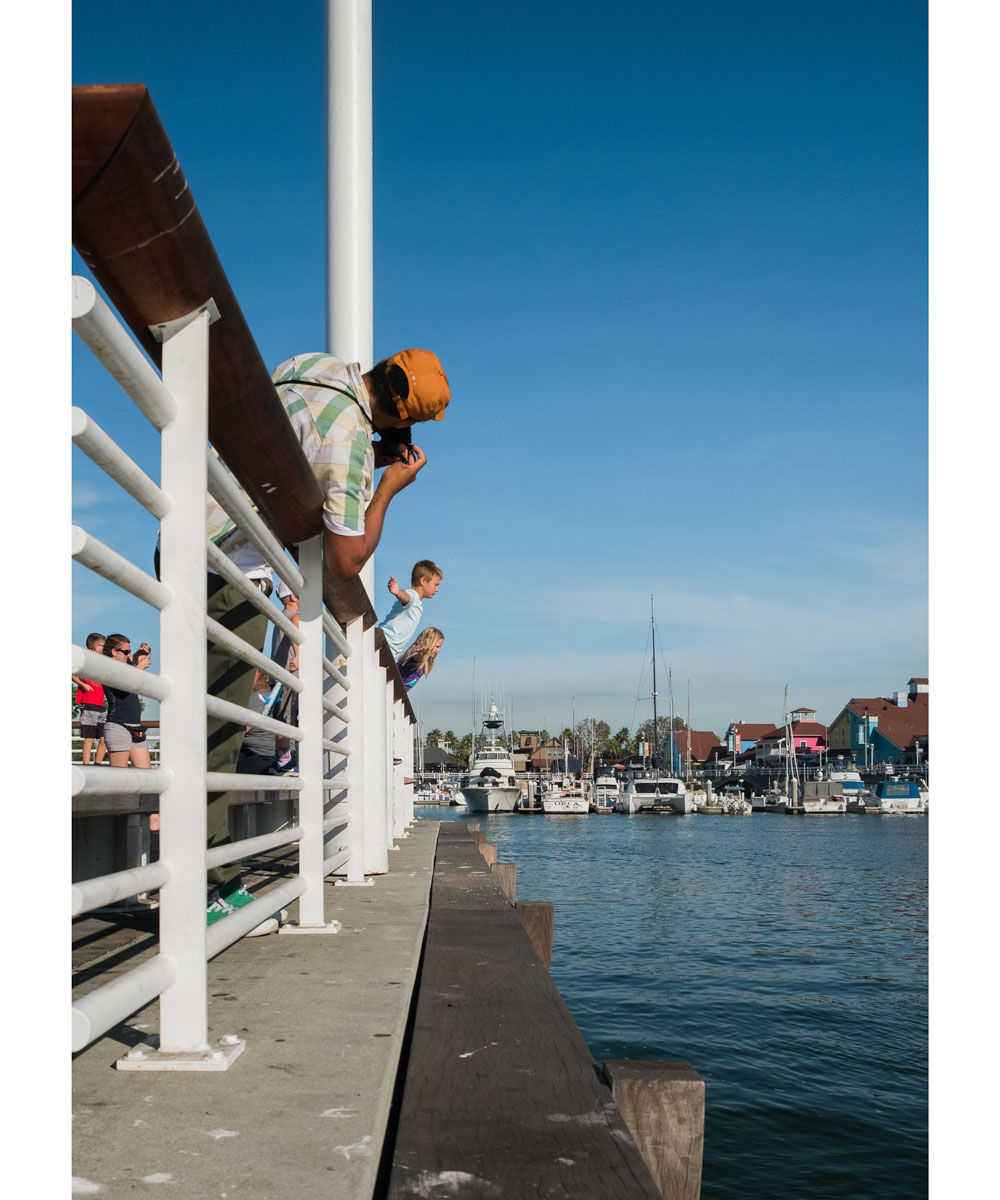
And I'll never forget, you'd push on the glass for it to open. I'd push on the glass, it opened up and then I'd just pull out the records, and I'd just be looking at them, front to back, not even listening to it, but just being enamored with the imagery. I think there were photos of Marvin Gaye, photos of Harold Melvin and the Blue Notes and Richard Pryor and stuff. And so those are my first images, sitting there, being mesmerized by these album covers.
When you first pick up a camera and what were you initially photographing?
Just like most people, snapshots of my life, snapshots of these travels because of skateboarding and getting to be on the road. Shooting what interests me, which is all-encompassing. It's a big umbrella of things that would catch my attention. But I always point my lens at people. Whether it's like my friends that were traveling with or whether it's somebody that looks interesting, or something kinda weird or unique.
What inspired you to start wanting to document that?
Many of my friends are professional skate photographers. I noticed that when they were shooting action they'd have a Nikon F5, or a Canon Eos with motor drives, right? And they had their lights and big lenses and things. But after we'd be out in the streets all day, and come back to the hotel and were going out at night to eat or to get into some nightlife, they would show up to the lobby with these little cameras, with these Leica cameras. I could just see that they cherish that camera, and cared about that camera so much more than the other camera. It was almost like the Nikons were like if you're UPS driver, that was the truck. You need that to drop off your loads and everything. But when they had the M6, then that's like their Porsches or whatever that they get to experience in their leisure time. Work camera, fun camera, personal camera. And so I always remembered that. I'd shot for five years with the Yashica T4 that Joe Brook hipped me to on this Vans tour one year. We were in New York and he took me to B&H because I was crying about not having a camera. I got a T4 at his recommendation. That's what I used to document my life.
"The coolest thing about photography is taking ordinary, mundane, average little scenes and turning it into art, or turning it into something that's exciting."
But when I got to the point of realizing that this thing is making a lot of decisions for me, there was a sense of like, I'm faking it, because I knew those dudes had manual cameras and they were making the decisions and so they had way more control about their outcome. And so I got to the point of being like, "Okay. I'm done with this. I want to learn to shoot with a manual camera. I want to learn to print in the darkroom.” When I started going down that route, that's when I started to remember about the smaller cameras. I started with my wife's camera which is a Pentax K1000, an SLR single lens reflex. It has a mirror in it so they're bigger and clunky and loud. That mirror's gotta get out of the way to make the exposure to the film, and then it slaps back. It's a loud sound, right?
And so I'm excited, I'm bugging my wife. I'm like, "Okay honey. What did your teacher say?” I remember going to a Vans thing at Paramount Theaters out in LA. I remember I was super excited, I got this camera and I'm excited to shoot. And I'm quickly realizing as I'm seeing my friends, I quickly realize that this camera is distracting. It's loud. If two people are talking and I'm shooting it, I'm breaking up the conversation. I made a comment to my buddy, John Humphreys, who's a photographer, "Dude, I'm so excited. I signed up for a course at Long Beach Community College. I wanna learn how to print but I can't get in for another month. Dude, this camera's kinda weird. It's big and loud." He's like, "You need a rangefinder." I'm like, "What's a rangefinder?"
That's what the Leicas were. That's what led me to a smaller camera. And once I went down that route, then you start to see the practitioners, the dudes that use that camera and ripped with it. I was hungry and thirsty for knowledge and images. I was checking out so many books. I gravitated towards a lot of the classic black and white photojournalist images from National Geographic and Magnum. That's kinda a school to come from. In skateboarding, I would say I come from the school of Neil Blender.
You’ve compared the accessibility of the rangefinder to the accessibility of street skating.
Yeah, exactly. There's a direct parallel because again that Pentax K1000 was almost like trying to skate Embarcadero with a Vert Board. It just wasn't conducive to how you want to function in that environment. That’s what the rangefinder allowed me to do, it was like having a street board. Your board's flipping easier, there's more board control. With the smaller camera, it’s less obtrusive. People think I'm a tourist. I'm not messing up the moment. I'm able to capture a moment and you're able to function and work in a way that allows you to get the moments that you want. I'm looking for the unposed moment. That's what I'm looking for.
A lot of people feel that way about iPhones now, it flattens the playing field.
For me, the problem with the iPhone is I can't get in the darkroom. But to your point, it's the same thing. When Oskar Barnack created the first 35mm camera in 1913, before that it was big view cameras. If you were a dad that wanted to capture a vacation with your family, you had to have the budget to bring a professional and his big camera along. Oskar Barnack creates this small camera and now the dad can shoot his family. He can shoot whatever occasion now. He doesn't need the professional dude with the big camera. And so the keyword is always accessibility. That made it accessible. Just like the street board and street skating in general made skateboarding accessible to the dude that doesn't know the dude that has the ramp. Now there's no gatekeeper. I don't have to get permission to ride my skateboard. I can go out and if there's cement I can go do my thing.
Is there something about the challenge and limitations imposed by shooting, developing, and printing your own photos that you feel like you need?
I think as skateboarders, we're too accustomed to the fight. We're accustomed to the release dynamic that comes from skateboarding. Most skateboarders can attest to how long it took them to learn how to ollie. So when you're accustomed to that, when you've lived in that space for so long, you tend to need it, to feel a sense of accomplishment. I know I do. I think I can speak for most skateboarders. I something comes really easy there's a sense of like, "I don't know how to feel about this."
A classic example is if you have an idea to film a trick and if for whatever reason you get it to happen on the first try. You're not that quick to say, "Okay, let's move on." You're questioning, “Was it that hard? I got it right off the bat so was it worthy? You deal with that. And that's the same thing with these other interests. If something's really easy, it's in a sense kinda boring. There's somewhat of that dynamic at play in it, you know? But it's not just that. It can't be just that. That's just a part of it. I'm just acknowledging that helps me too, that's a part of the passion.
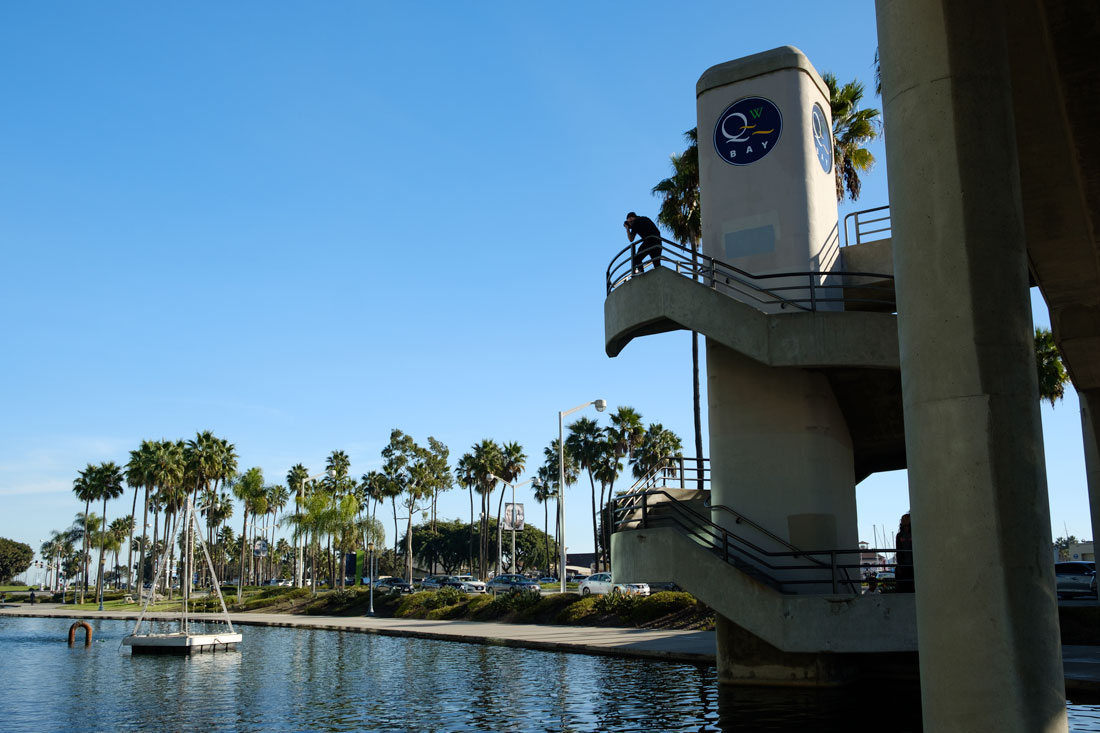
There's a magic to the darkroom too.
Yeah, and if we're talking about that specifically, then all of those aspects play a huge part of it. I feel with film photography and black and white, because that's what I love, that's what I have an emotional connection to, and the print from the darkroom, not from an inkjet, but from light hitting photographic paper and going through the chemicals. The amount of detail that you have to pay attention to along the way, the accumulation of all that, when all that stuff's hitting, all the way through to the print, all the way through to when you take it out of the fix and you wash it, and you get out into the light and you see it... There's very little, for me, that can compete with that when it's singing. But it's really hard to do that. Something falls off somewhere in that process, and that becomes the fun. That becomes the challenge. It's like, "How do we get it?" But you get glimpses of it. You get glimpses of it which is enough to keep it going. And you might even get it, but what that does is it gets you excited to do it again. It keeps feeding itself. And so, for me, that's the joy of it. There's a huge sense of accomplishment because you feel you worked hard at something. Not anybody can come and do this right away. You gotta work at it. There's pride that comes from that, a healthy pride. You're proud of hard work. It's good to be proud of hard work.
Is photography more of a solo or a social process for you?
It functions just like skating. There are times where I'm like, "There's no one around, I wanna go skate." Or, I'm not even trying to see if anyone's around, I just need to go skate by myself. It's all the same, even music too. I feel like writing a song, I'm gonna do it by myself or I'm gonna see if so and so wants to jam. Anyone want to jam? That's what I appreciate the parallels with all my interests is that you can do it on your own, you can do it in a community. I would say that by default, it depends on what you're doing. Sometimes it's hard to go out shooting with friends. It's a different experience. It's not so black and white for me, it depends on how I'm feeling or it's case by case kinda thing. Usually, if I'm working on a project or something, I just want to go out on my own.
Do you enjoy that part of it too, editing and sequencing photos?
Yeah, you know what I do. But I'm not good at it. This made me start to learn it. It gets easy to just pick out your heroes that have a function by themselves but to have them be able to work together and tell this bigger story, that's something that I don't really put myself in too much.
You mentioned having projects for yourself. When you are shooting a project, are you now thinking about what images you have and what more you need?
It depends what the project is but yeah. It's interesting, I encourage everyone to start looking at their work over a certain amount of time because it was a mirror to me. I saw ideas that functioned, I saw a lot of ideas that didn't, that forever reason I kept going to that didn't work. It's really healthy but not everybody's shooting to tell a story and that's super cool too. But I've done that for 10 years, It's part of the craft. All my heroes, it's how they function. It's no different than being a freshman and drawing a Tony Hawk graphic but with my name on it, right? You look to your heroes and they set the standard of where you can go. And so, because of my heroes, I see their body of work and I'm like, "Dude. I want to have a body of work."

